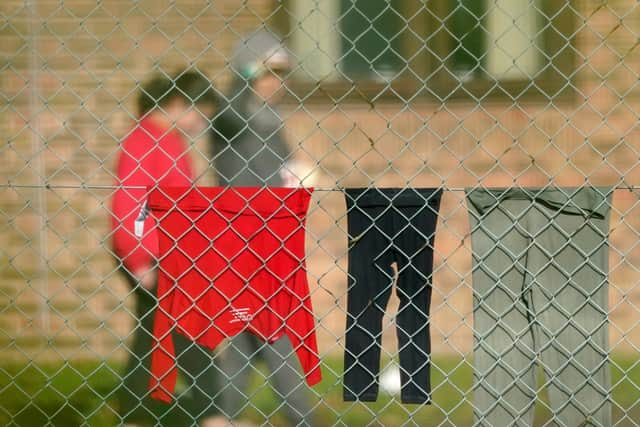Wigan looking after an increased number of lone asylum-seeking children
and live on Freeview channel 276
The Children's Society said it is essential these children who arrive alone, often after a "traumatic and dangerous" journey, get the proper support and protection they need from local authorities.
Unaccompanied asylum-seeking children often present themselves at points of entry into the country in their own right and are separated from both parents or any other responsible adult.
Advertisement
Hide AdAdvertisement
Hide AdFigures from the Department of Education show 12 lone asylum-seeking children were in care in Wigan on March 31, up from the year before when there was none.


Kent looked after the largest number of asylum-seeking children in England at this time, with 370 in care in the area. It was followed by Hillingdon with 139 children and Manchester with 138.
Across the country, 5,570 unaccompanied asylum-seeking minors were being looked after by local authorities at the end of March – the largest number since records began in 2004 and up 34 per cent on the year before.
The figures show the ethnicity of asylum-seeking children in care has changed over time, with nearly half (45 per cent) from "other ethnic groups" – up from 35 per cent in 2018.
About 24 per cent were Asian or Asian British, while 23 per cent were black, African, Caribbean or Black british and four per cent were white.
The Government said the large increase in asylum seeking children reflects the increase in the number of asylum seekers arriving on small boats on the south coast.
Overall, 7,447 children were being looked after in Wigan at the end of March in the area with 416 placed in foster care.
In Wigan, the Support for Wigan Arrivals Project supports asylum seekers and refugees who come to live in the borough. It has close working relationships with a large number of specialist providers to which they can signpost people.
Mike Taylor, project co-ordinator from Wigan’s SWAP, said: “The vast majority of asylum seekers in Wigan are living in what is called ‘dispersed accommodation’, managed by the company Serco.
Advertisement
Hide AdAdvertisement
Hide Ad"They have a fixed number of properties at one point in time and it’s designated whether it’s suitable for a family or a house of multiple occupancy.
"Generally speaking, the number of family homes have remained about the same for about the last five years or so. Whilst there might be fluctuations, they’re not notable at all. Though there might be an increase in the number of vulnerable unaccompanied asylum seeker children.
"This could be partly due to Wigan borough having an asylum-seeker hotel to provide temporary accommodation. It might be that they’ve been moved to the hotel and then it gets discovered that they are a child, and by child they could be 16 or 17 years old.
"Since the hotel has only been open 18 months, if you compare this year’s statistic to last year’s, you will see a difference.
Advertisement
Hide AdAdvertisement
Hide Ad“The children are unaccompanied because they’ve set off across the Channel alone and unaccompanied by a parent. So, they’ve probably left the country of origin by themselves in the first place.
“Because they’re children, they’ll end up in children’s homes.
"What I think happens is, they’ll at first be in the hotel and not attending any school, until it gets discovered that they are under-age. They’ll then go to a children’s home and social services will intervene and get them sorted with schooling and everything else. It should only be adults staying in the hotel.
"The children will enter the asylum system, just like anyone else, and eventually the Home Office will make a decision on their claim.
Advertisement
Hide AdAdvertisement
Hide Ad"They are given a term of stay, often it will be for two and a half or five years. Then they have to apply for another form of leave: what’s called ‘indefinite leave to remain’.
"When an asylum seeker gets a decision by the Home Office, it is for a finite period of time.
"It’s complex, and they change the card system. At the moment, it’s two and a half years, sometimes five.
“We have noticed an increase in Ukrainian children. The first Ukrainains arrived in May, and what we’re seeing now is a constant trickle.
“Each week we see a new family arrive and we work closely alongside the council with them."
